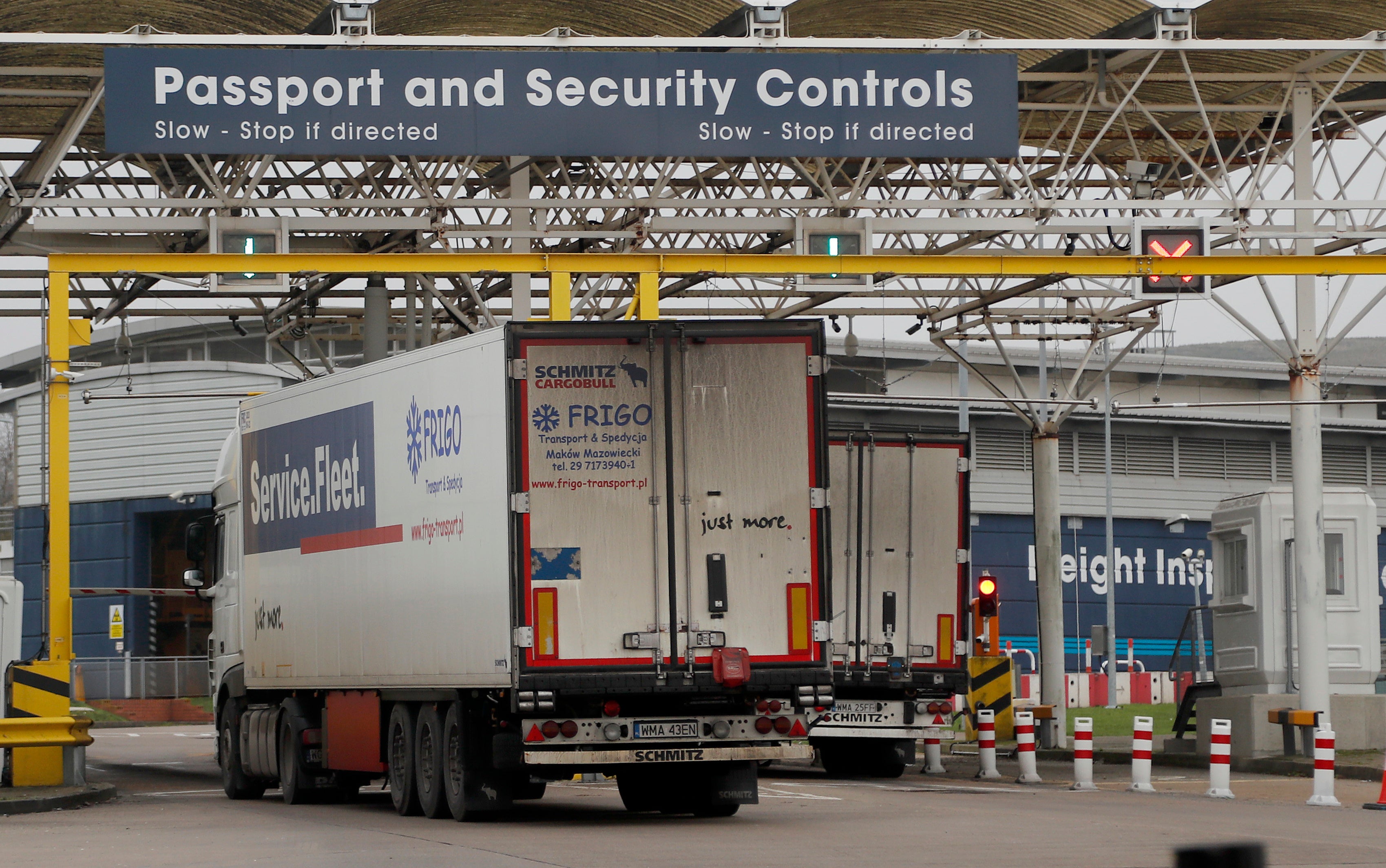Brexit red tape is no accident – it’s government policy
The forms, fees and admin hoops that are strangling British exports abroad were created by the government’s flagship policies of leaving the EU single market and customs union, writes Jon Stone


The news that businesses are still struggling with Brexit red tape two years after the EU trade deal was agreed won’t be a surprise to anyone who has been reading The Independent.
Last month we reported that more than 40 per cent of British exports have disappeared from European shelves since Brexit. The scale of British unilateral economic disarmament has been truly vast.
As a former Brussels correspondent, I occasionally paid visits to the Belgian capital’s “British shop”, where expats missing home could stock up on familiar UK produce like Marmite or shortbread. But visit today, and everything possible has been replaced with an Irish analogue because it is easier to procure within the single market.
Today’s story shows this is just one example of a story being replicated all over Europe. British businesses are simply finding the new export red tape not worth the hassle, or are being outcompeted by firms from other countries that don’t have to deal with it.
Food minister Mark Spencer on Thursday said there was “always more” the government could do to reduce red tape. But anyone who has followed the situation closely will find this response infuriating and dishonest in the extreme. The phrasing implies the government has been reducing bureaucracy and form-filling.
In reality, the creation of this bureaucracy is quite literally government policy. It is not something that existed when they came into office, or a natural phenomenon that the government is doing its best to abate.
And it is not even some unfortunate side-effect of other government policies that nobody could have anticipated. All the new forms, fees and administrative hoops that are strangling British exports abroad were created by the government’s flagship policies of leaving the EU single market and customs union. In a sense, they quite are literally the policy.
A customs union is about removing customs barriers. Leaving the customs union means reintroducing them. A single market means removing bureaucratic barriers to trade with other countries. Leaving the single market means reintroducing them. So to hear the government say there is “always more” they could do to reduce bureaucracy, when they have strained every sinew of the British state since 2016 to introduce these barriers, will sit extremely poorly with anyone who understands the situation.
The government says there are other benefits from leaving the customs union and single market. But they are yet to materialise, and unlikely to do so in the future. As we have reported at length, and as some former ministers now admit, the Brexit trade deals signed with other countries simply haven’t been very good. They do not fill the gap.
And yet they seem to be getting away with it. Even the Labour Party has decided to be explicit: there will be no return to the single market or customs union, only tinkering around the edges.
This is despite polling now showing British people want to rejoin the EU proper by a significant margin. The government may end up paying the price indirectly, with the economic damage it has created costing it support at the ballot box. But in Westminster, even as growth forecasts are revised lower and lower, few on the front lines dare point the finger at Brexit.
Yours,
Jon Stone
Policy correspondent
Join our commenting forum
Join thought-provoking conversations, follow other Independent readers and see their replies
Comments
Bookmark popover
Removed from bookmarks